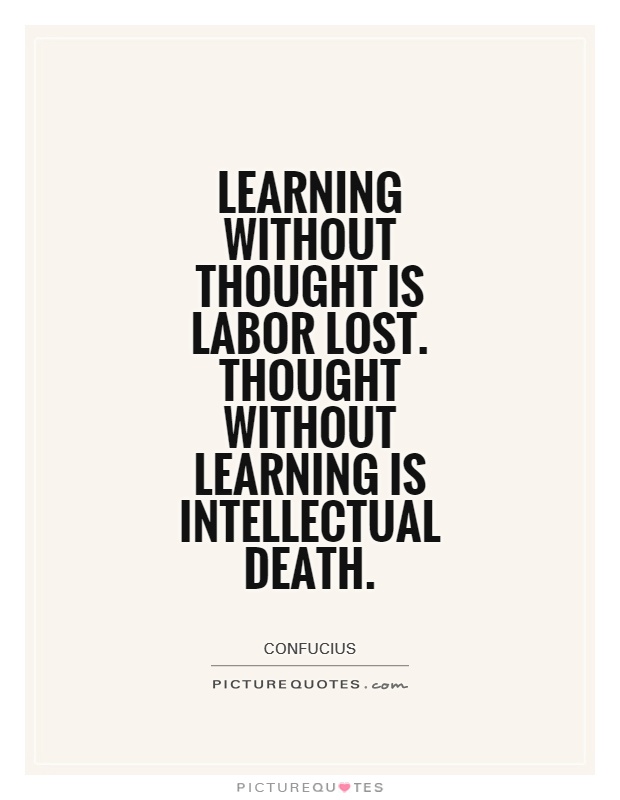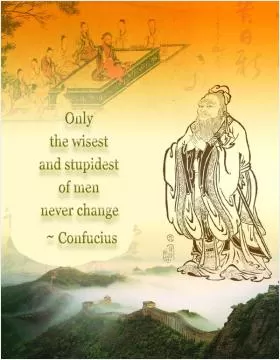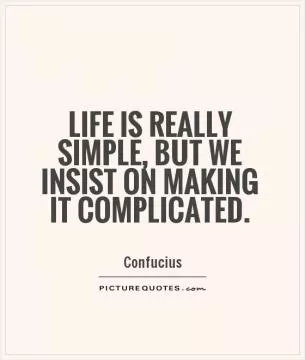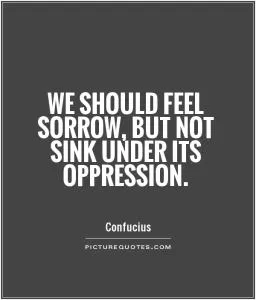Learning without thought is labor lost. Thought without learning is intellectual death

Learning without thought is labor lost. Thought without learning is intellectual death
Confucius, the ancient Chinese philosopher and teacher, emphasized the importance of both learning and critical thinking in order to achieve true wisdom and understanding. His famous quote, "Learning without thought is labor lost. Thought without learning is intellectual death," encapsulates his belief that true knowledge comes from a combination of both learning and reflection.In the context of Confucius' teachings, "learning without thought is labor lost" suggests that simply memorizing facts or information without truly understanding or reflecting upon them is a futile exercise. In other words, rote memorization without critical thinking does not lead to true knowledge or wisdom. Confucius believed that true learning requires not only the acquisition of knowledge but also the ability to think critically about that knowledge, to question it, analyze it, and apply it in meaningful ways.
On the other hand, "thought without learning is intellectual death" warns against the dangers of relying solely on one's own opinions or ideas without a solid foundation of knowledge. Confucius believed that intellectual growth and development require a balance between independent thinking and a solid understanding of the teachings and wisdom of those who came before us. Without a strong foundation of learning, one's thoughts and ideas may lack depth, insight, and relevance.
Confucius' teachings on the importance of both learning and critical thinking have enduring relevance in today's world. In an age of information overload, where facts and data are readily available at our fingertips, it is more important than ever to cultivate the ability to think critically about the information we encounter. True wisdom, according to Confucius, comes not from the accumulation of facts but from the ability to reflect, analyze, and apply those facts in a meaningful way.












 Friendship Quotes
Friendship Quotes Love Quotes
Love Quotes Life Quotes
Life Quotes Funny Quotes
Funny Quotes Motivational Quotes
Motivational Quotes Inspirational Quotes
Inspirational Quotes